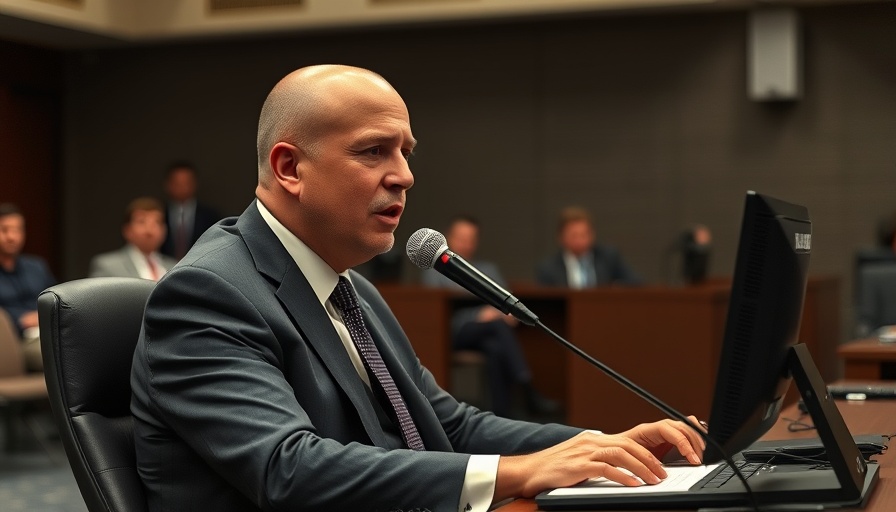
Former Houston ISD Chief Guilty of Corruption
In a significant ruling that underscores the ongoing battle against corruption in educational institutions, Brian Busby, the former Chief Operating Officer of Houston Independent School District (HISD), was found guilty of bribery. The jury determined that he had accepted substantial bribes in exchange for inside information about school contracts which ultimately cost taxpayers significantly. This outcome is a crucial reminder of the ethical considerations that must govern public service roles, especially those directly influencing education.
The Support System Fails: How the System Let Him Down
The case raises questions about the mechanisms in place to uphold transparency within school districts. Many argue that systemic failures in oversight contributed to this corruption, suggesting an urgent need for checks and balances in public education systems nationwide. Moreover, some noted that both internal and external auditors need more robust processes to deter and catch unethical behavior like Busby’s.
Public Reaction: Loss of Trust in Educational Leadership
The reaction from the public has been fierce. Parents and community members express concerns about their children’s educational integrity. The public's trust in the Houston ISD has been shaken, leading to discussions about increased accountability measures. As local residents grapple with disappointment, experts stress the importance of re-establishing faith in educational leadership through transparency and community engagement.
Future Trends in Educational Governance
As we look to the future, several trends may emerge from this scandal. Schools across the U.S. may prioritize anti-corruption training and implement stricter rules for financial transparency. Educational leaders might also begin to focus on ethics as a core part of their training programs, aiming to nurture a culture of integrity that can prevent similar cases from occurring.
Lessons Learned: The Importance of Ethical Leadership
This unfortunate event serves as a critical reminder of the importance of ethical leadership in public offices. Not only does ethical leadership affect institutional integrity, but it also impacts community trust in education overall. Organizations, including schools, should invest in developing leaders who prioritize moral values alongside operational efficiency to foster an environment that is trustworthy and accountable.
Encouraging Community Engagement and Oversight
In light of Busby's conviction, many advocates are calling for greater community involvement in educational governance. Increased transparency and a more significant role for parents and community members in decision-making processes may hold leaders accountable and prevent instances of corruption. Engaging local communities in discussions about changes can foster a collaborative approach to maintaining integrity in education.
As this case against Busby continues to unfold in appeals, it is essential for both current and future public servants to recognize the weight of their ethical obligations. With a solid community effort towards oversight and a focus on ethical leadership, we can hope for a brighter path for our educational institutions across the U.S.
It is crucial for everyone to stay informed about how these developments affect our schools and communities. In advocating for education that is free of corruption, we protect the opportunities of all students.
 Add Element
Add Element  Add Row
Add Row 



Write A Comment